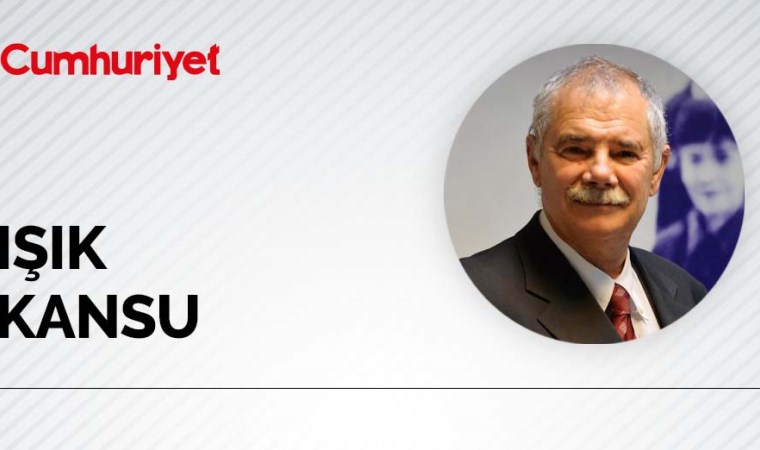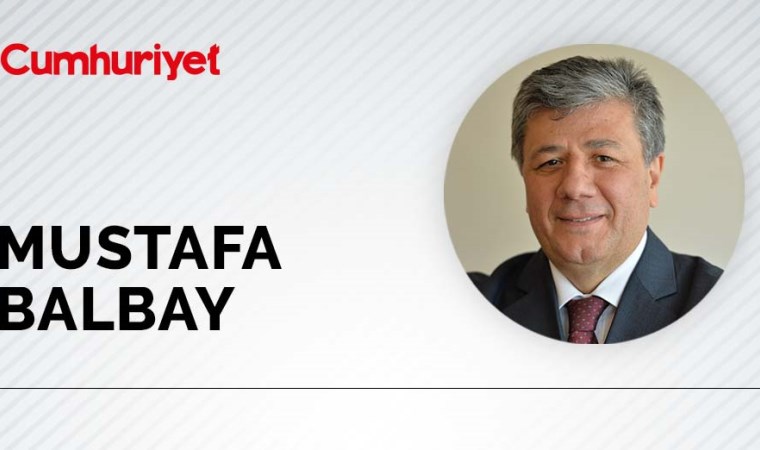Shift of focus in the overarching trial
The defence tactic of the military personnel in the 15 July overarching trial has been to accuse figures such as Full General Hulusi Akar and Hakan Fidan, who were negligent over the coup attempt.

Alican Uludağ
The overarching trial into the activities at General Staff of the Gulenist junta that staged the 15 July coup attempt has put a week behind it. The defendants who have made their defences so far and who are accused of being members of the Peace at Home Council are playing the trump card that the intelligence agency got wind of the coup and was unable to prevent the attempt in advance. At the hearings, the focus of the trial has suddenly shifted towards Hulusi Akar and Hakan Fidan. Indeed, some of the defendants, who allege that they fought against the Fethullah Gülen Terrorist Organisation (FETO), have pointed to Chief of the General Staff, Hulusi Akar, and President Tayyip Erdoğan’s culpability in certain figures implicated in the coup being promoted in 2014 and 2015. Reports that they had no FETO records into 585 military personnel about whom inquiries were made to the intelligence agency in 2015 and the comment by Hulusi Akar towards the middle of 2016 when Mehmet Partigöç’s Gulenist connections were being discussed that, ‘I trust him’ also provide an insight into way the 15 July coup attempt was concocted.
The overarching trial into 15 July that started last Monday in a special courtroom made for the FETO trials within the Sincan Prison Complex will continue until 16 June. With there being 221 defendants in the trial, the defences of members of the Peace at Home Council have been prioritised. So far, eleven of 37 people have been heard. Apart from the first day, the trial has been low key. The bench has not asked demanding questions of the defendants, nor has the prosecutor. One point that has evoked the most criticism from the defendants’ lawyers was the way they were specially paraded past victims on the first day and a hangman’s noose was thrown at them. The lawyers pointed to this as a breach of the presumption of innocence. It is also noteworthy that every defendant to take the stand has spoken of undergoing torture and ill-treatment at police premises and has said that their bodies still bear the traces of this.
Questions about Akar
The defendants have employed similar tactics to one another during their defences. While alleging that they did not take part in the coup attempt, they have attempted to account for 15 July as a counter-terrorism operation, a precaution against a terrorist attack or an exercise. However, despite this, they have contradicted themselves in many questions. The first to be heard, Akın Öztürk, said, ‘I had no participation in the coup and no knowledge of it.’ But, he was unable to explain how he came to be quite freely and comfortably wandering around the Akıncı Base on the evening of the coup. Öztürk, saying he was trying to persuade the coupists at the behest of Hulusi Akar, who was being held hostage at Akıncı, said of Akar, ‘He looked worried. But, he gave no indication that he would get physically involved and prevent this at the cost of his life.’ Staff Colonel Fırat Alakuş, who raided General Staff with 33 Special Force members, alleged that Hulusi Akar perfectly freely left his office along with Mehmet Dişli and went to the helicopter, and even asked for his cap before leaving headquarters.
Only two confessions
Only two defendants have confessed to participating in the coup attempt. Staff Colonel Fırat Alakuş, and Brigadier General Gökhan Şahin Sönmezateş, who headed the team that went to Marmaris to apprehend the president, said they thought the coup attempt was under the Chief of the General Staff’s chain of command.
Sönmezateş, at the time of the attempted coup, was heading the Joint Target Analysis Intelligence Centre. This unit was the centre behind such critical operations as the Mosul hostage crisis and Suleyman Shah. Sönmezateş, saying that he took the duty of taking the president from Marmaris and bringing him securely to Ankara from Semih Terzi and went with the team to Çiğli for this purpose, said, ‘Somebody kept us waiting there for four hours.’ During the hearing, Sönmezateş spoke of a scene from the 1995 film Brave Heart. Sönmezateş, recalling that the main hero of the film, William Wallace, spoke to the king and got the decision to wage war against the English, said, ‘When they go to war, two or three groups leave Wallace on his own. At one stage of the war, while battling with an Englishman, his mask falls and he sees his own king. The king on whose behalf they had gone to war was fighting against them. We, too, are in the same position just now.’ The presiding judge asked, ‘Who is your king?’ and Sönmezateş replied, ‘Let us leave that for the Akıncı trial for the time being.’
The intelligence agency’s negligence trump card
The defendants made frequent recourse in their defences to the counterargument that the intelligence agency had got previous wind of the coup attempt and had not prevented the event. Questions as to why the intelligence agency, despite having advance knowledge of the coup, was unable to prevent it and the conclusion that it should thus be held to account formed part of nearly every defendant’s defence. Indeed, former Brigadier General Erhan Caha took the matter a further step forward, read the letter he wrote to Hulusi Akar and said, ‘I hope you will not be the first Chief of the General Staff to be detained while on active service.’ The defendants adopted the ploy in their defences of continually accusing figures such as Hulusi Akar, Hakan Fidan, Yaşar Güler and Zekai Aksakallı so as to deflect debate away from themselves.
With some of them even asserting that they had fought against FETO, they accused the chain of command in this regard. The defendant Colonel Cemil Turhan, Director of one of the General Staff’s most critical units, the Generals’ and Admirals’ Branch, asserted that the names of those who were promoted from colonel to general in 2014 and 2015 were taken by Necdet Özel along with Hulusi Akar to Tayyip Erdoğan and the lists were fleshed out here. Turhan argued that inquiries were made to the intelligence agency about the 585 people named on the 2015 promotions list but no reply came indicating any of them to be Gulenists. He additionally alleged that the list emanating from the intelligence agency in 2016 was given by Yaşar Güler himself to Mehmet Partigöç, who was rumoured to have FETO connections.
Akar trusted him
Cemil Turhan said that Erdoğan’s former Chief Aide-de-Camp Colonel Ali Yazıcı had been recommended for this post by Hulusi Akar himself. Ali Yazıcı also said in his defence, ‘The coup attempt was spoken of one or two months in advance in the president’s plane.’ The General Staff Personnel Chief at the time, İlhan Talu, also numbers among those who accuse Hulusi Akar and Yaşar Güler. Talu, stating that they had identified 129 admirals and generals, including Brigadier General Mehmet Partigöç, at the preparatory stage of the 2016 Supreme Military Council, indicated that he had told the Chief of the General Staff and the Second Chief that Partigöç was a Gulenist but they had said, ‘We trust Partigöç and do not believe these records.’
Dişli avoids making his defence
When the turn came for Mehmet Dişli’s defence, he said, ‘I do not wish to speak tomorrow.’ Consequently, Dişli’s defence has been adjourned until later. Today, one of the most critical figures in the trial, Mehmet Partigöç, will be heard and fresh information will emerge as to what went on at Headquarters.

En Çok Okunan Haberler
-
 Bahçeli'nin açıklamaları sahaya nasıl yansıdı?
Bahçeli'nin açıklamaları sahaya nasıl yansıdı?
-
 Cinsel içerikli videolar çeken karı-koca tutuklandı
Cinsel içerikli videolar çeken karı-koca tutuklandı
-
 PKK Suriye’nin Silahlı Kuvvetleri Oluyor
PKK Suriye’nin Silahlı Kuvvetleri Oluyor
-
 İstanbul'da berber ücretlerine dev zam!
İstanbul'da berber ücretlerine dev zam!
-
 Kılıçdaroğlu’ndan videolu mesaj
Kılıçdaroğlu’ndan videolu mesaj
-
 CHP ne yapmalı?
CHP ne yapmalı?
-
 Özgür Özel, Erdoğan'a seslendi
Özgür Özel, Erdoğan'a seslendi
-
 Ölü ve yaralılar var!
Ölü ve yaralılar var!
-
 Erdoğan'dan Özel'in 'savaş ilanı' sözlerine yanıt
Erdoğan'dan Özel'in 'savaş ilanı' sözlerine yanıt
-
 Anlattığı anlar ortaya çıktı!
Anlattığı anlar ortaya çıktı!